Work location of SAP consultants
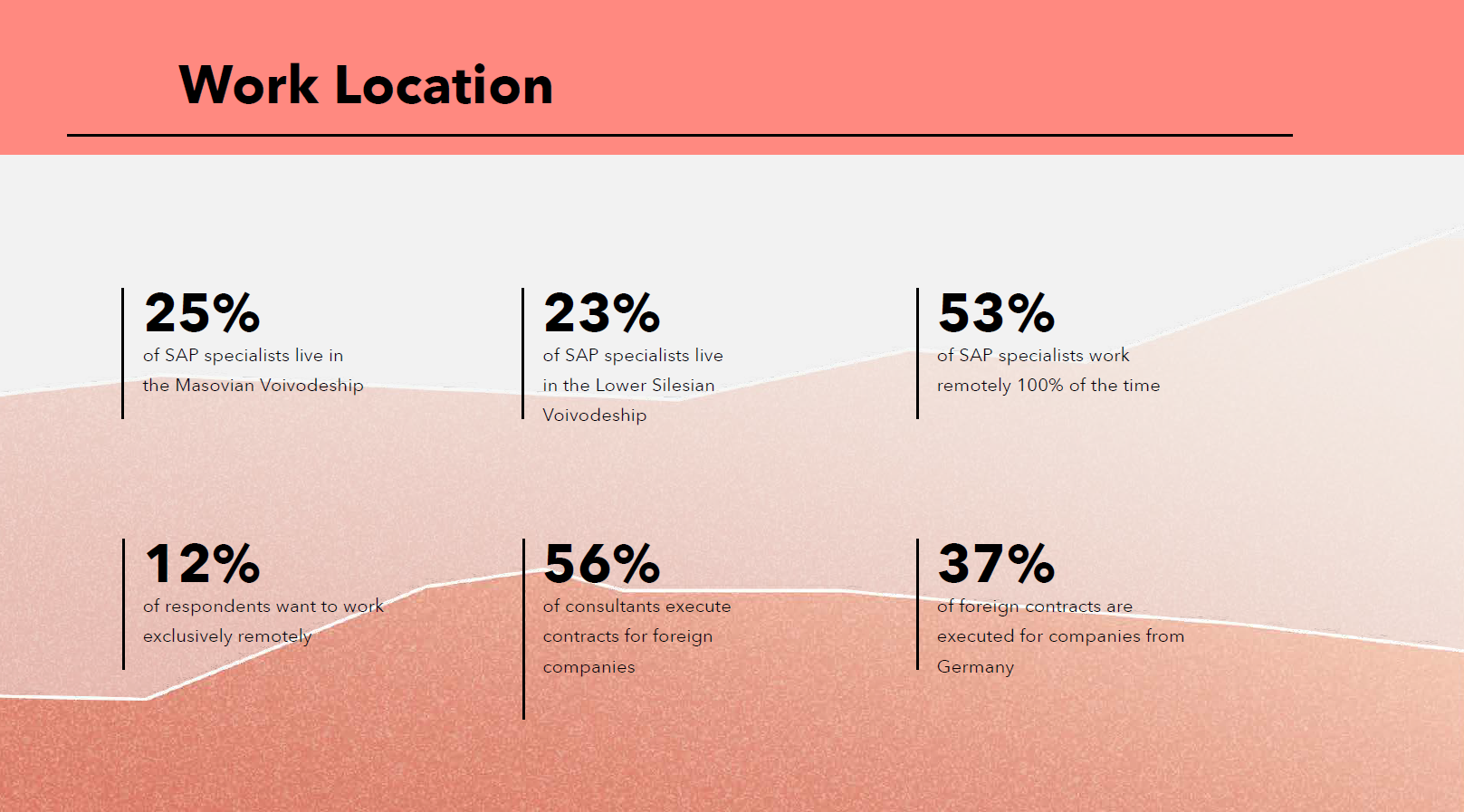
Years of onsite work have led consultants to live and work in several main industrial centres in Poland, where the headquarters of Polish and international companies, as well as shared services centres, are located.
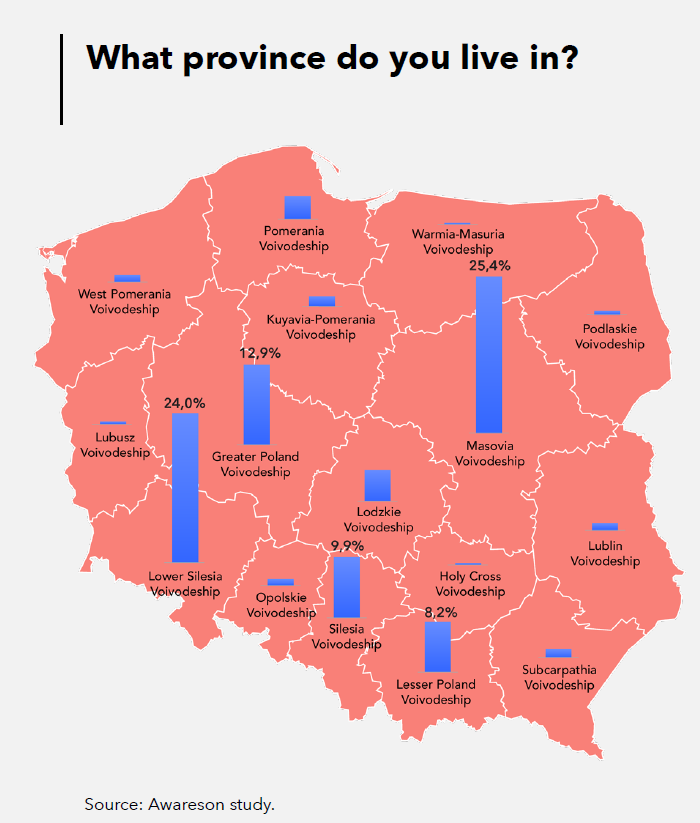
More than half of SAP consultants declare that they work on foreign projects. In most cases, this is done through large consulting firms that have international teams, and “juggle” them, according to market needs. I do not perceive this interest in our consultants as a threat to companies in Poland. The number of SAP specialists is currently sufficient to meet demand. We also see an influx of consultants to Poland from other countries, especially Romania, Turkey, and Ukraine.
Foreign companies, more often than Polish ones, also require office work. This is a trend created by large technology companies with a strong brand that are able to impose their rules on employees. Smaller companies try to follow them, which does not always succeed. In Poland, I anticipate maintaining a compromise in the form of hybrid work with 2-3 days in the office. In IT, many tasks can be efficiently performed remotely.
As for business trips, juniors and mid-level employees have no problem with them, as long as they are not too frequent. Seniors are less inclined to travel.
Robert Wasilewski
IT EUROPE / CESS Operations & Finance Service Delivery Manager at L’Oreal
Over half of the respondents indicate that they execute projects directly for foreign companies, mainly from the DACH countries, USA, Denmark, and the Netherlands. Most of them work through consulting and outsourcing firms, and less than 10% earn directly in foreign currencies.
The popularity of working for foreign companies, in addition to the high quality and cost availability of candidates from Poland, is also due to the pandemic. The ubiquity of remote work has encouraged companies outside Poland to seek support from our experts.
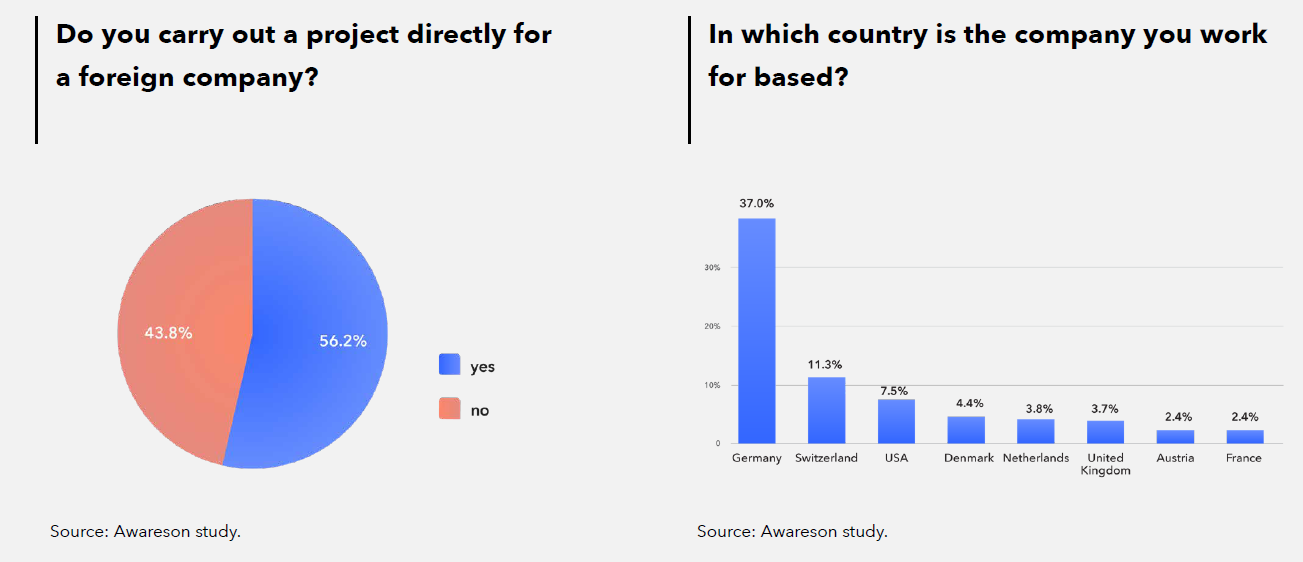
Currently, most consultants and developers work remotely, and only 4% of respondents perform tasks 100% from the company’s premises. The longer the tenure, the greater the reluctance to work onsite, which stems, not only from comfort, but also from the involvement of experts in more than one project. Unfortunately, the popularity of remote work, as well as the multitude of duties of the most experienced specialists, makes it difficult to transfer knowledge to juniors.
Openness to office work is slowly increasing. Almost three-quarters of respondents are willing to come to the company’s premises at least 3 days a week. Just last year, such proposals were rejected by the majority of candidates.
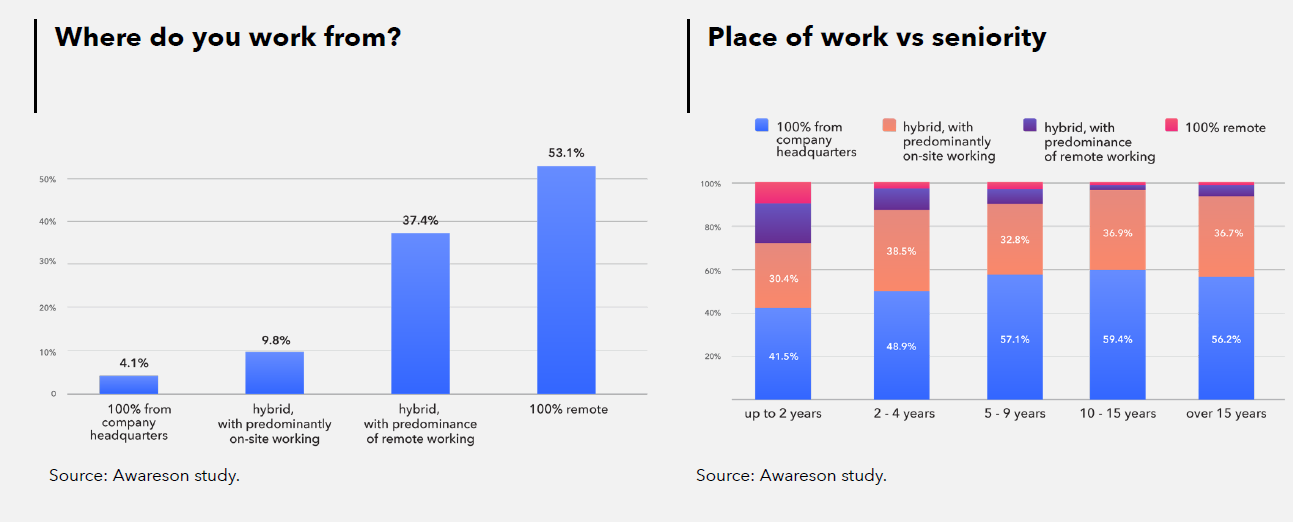
Travelling within projects is not as common as before the pandemic, but some companies still expect visits from the project team to factories and other parts of the company where SAP is being implemented.
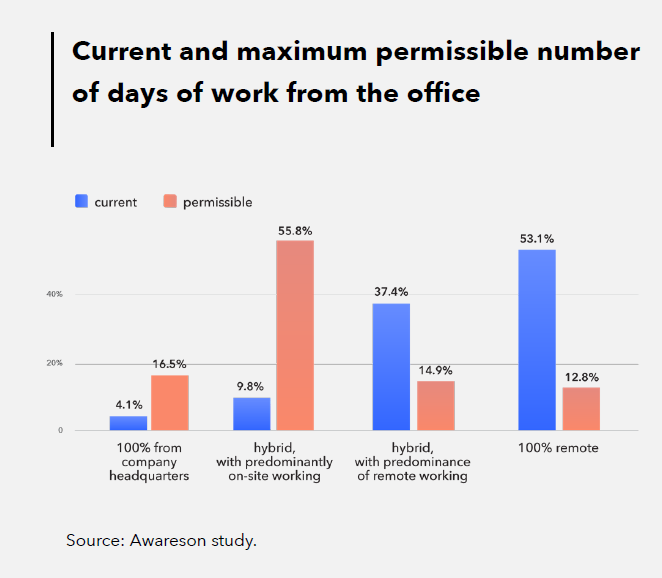
Currently, our market relies on specialists who gained experience before the pandemic by working in large teams. They benefited from direct support and the practical knowledge of other specialists, and working in the office gave them the opportunity for experience exchange and mentoring. Now, such experts choose remote work. Meanwhile, the market still needs to train new personnel. Young people starting their professional careers are unfamiliar with teamwork in the same way as seniors. Sometimes, they have never seen members of their team, which makes it difficult for them to acquire knowledge and experience. For now, the market is based on “pre-COVID personnel,” but over time, the lack of experience exchange may negatively impact the market. This is one reason why many foreign companies encourage employees to work from the office.
In Poland, compared to other countries, managers have greater freedom in organizing work. Abroad, we also see a growing concentration of specialists around large urban areas or technological hubs. Data concerning Poland also shows 4-5 such clusters, but due to remote work, companies can still access talents from different regions.
Aleksandra Stachowiak-Klimek
Regional IT Manager for Finance & Legal EUR at Nestle
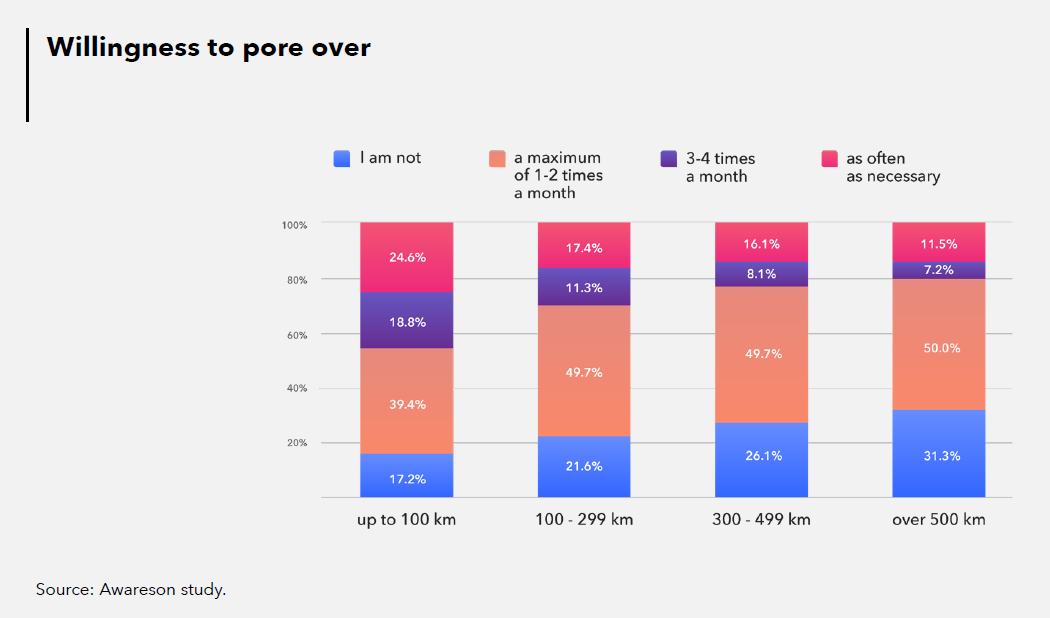
About 80% of consultants are willing to travel regularly – frequency is key, not distance. Half of the respondents declared a willingness to visit clients 1-2 times a month, and 1/5 as often as required.
Want more information about the SAP community in Poland? Download our SAP Report 2024



